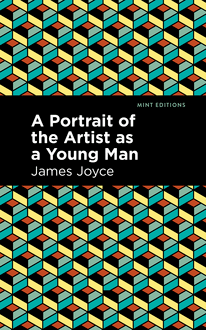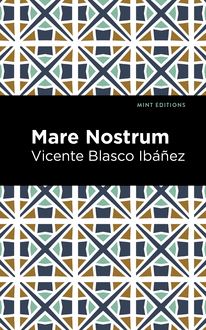-
 Univers
Univers
-
 Ebooks
Ebooks
-
 Livres audio
Livres audio
-
 Presse
Presse
-
 Podcasts
Podcasts
-
 BD
BD
-
 Documents
Documents
-
- Cours
- Révisions
- Ressources pédagogiques
- Sciences de l’éducation
- Manuels scolaires
- Langues
- Travaux de classe
- Annales de BEP
- Etudes supérieures
- Maternelle et primaire
- Fiches de lecture
- Orientation scolaire
- Méthodologie
- Corrigés de devoir
- Annales d’examens et concours
- Annales du bac
- Annales du brevet
- Rapports de stage
La lecture à portée de main
Vous pourrez modifier la taille du texte de cet ouvrage
Découvre YouScribe en t'inscrivant gratuitement
Je m'inscrisDécouvre YouScribe en t'inscrivant gratuitement
Je m'inscrisEn savoir plus
Vous pourrez modifier la taille du texte de cet ouvrage
En savoir plus

Description
Old Jago is tucked away in the East End of London, conveniently placed so the wealthy and the fortunate can forget all about it and its unlucky residents. Dicky Perott does not have the luxury of forgetting about the ugly truth of Old Jago, because he and his family barely can afford the single-room home they live in, fighting off robbers, fleas, and the cold. Though he is just a young boy, Dicky already dreams of the day he can leave the slum forever, but first, he has to find out how. Roaming the streets daily, Dicky begs and steals to survive, and is always looking for an opportunity to improve himself. As a riveting narration paints a portrait of life in Old Jago, Dicky comes of age while believing that if he works hard and hopes even harder, he will make it out of Old Jago alive. First published in 1896, A Child of the Jago earned Arthur Morrison considerable fame and commercial success. Quickly becoming a bestseller, this 19th century drama is now considered to be Arthur Morrison’s best work. Often praised for the authenticity in his portrayal of London’s working class, Arthur Morrison provides a devastating portrayal of life in a London slum in A Child of the Jago. Through an incredibly visceral depiction of the setting and characters, A Child of the Jago is unapologetically honest and gripping. With themes of class, coming-of-age, and societal injustice, Morrison offers modern readers a rare portrayal of the poorest class in 19th century London, without omitting a single detail. With relatable characters that demand empathy and a setting that steals attention, A Child of the Jago remains on the mind long after the novel’s conclusion. This edition of A Child of the Jago by Arthur Morrison now features an eye-catching new cover design and is printed in a font that is both modern and readable. With these accommodations, this edition of A Child of the Jago creates an accessible and pleasant reading experience for modern audiences while restoring the original wit and intrigue of Arthur Morrison’s work.
Sujets
Informations
| Publié par | Mint Editions |
| Date de parution | 14 mai 2021 |
| Nombre de lectures | 0 |
| EAN13 | 9781513285795 |
| Langue | English |
| Poids de l'ouvrage | 1 Mo |
Informations légales : prix de location à la page 0,0450€. Cette information est donnée uniquement à titre indicatif conformément à la législation en vigueur.
Extrait
A Child of the Jago
Arthur Morrison
A Child of the Jago was first published in 1896.
This edition published by Mint Editions 2021.
ISBN 9781513280776 | E-ISBN 9781513285795
Published by Mint Editions®
minteditionbooks .com
Publishing Director: Jennifer Newens
Design & Production: Rachel Lopez Metzger
Project Manager: Micaela Clark
Typesetting: Westchester Publishing Services
C ONTENTS I II III IV V VI VII VIII IX X XI XII XIII XIV XV XVI XVII XVIII XIX XX XXI XXII XXIII XXIV XXV XXVI XXVII XXVIII XXIX XXX XXXI XXXII XXXIII XXXIV XXXV XXXVI XXXVII
I
It was past the mid of a summer night in the Old Jago. The narrow street was all the blacker for the lurid sky; for there was a fire in a farther part of Shoreditch, and the welkin was an infernal coppery glare. Below, the hot, heavy air lay, a rank oppression, on the contorted forms of those who made for sleep on the pavement: and in it, and through it all, there rose from the foul earth and the grimed walls a close, mingled stink—the odour of the Jago.
From where, off Shoreditch High Street, a narrow passage, set across with posts, gave menacing entrance on one end of Old Jago Street, to where the other end lost itself in the black beyond Jago Row; from where Jago Row began south at Meakin Street, to where it ended north at Honey Lane—there the Jago, for one hundred years the blackest pit in London, lay and festered; and half-way along Old Jago Street a narrow archway gave upon Jago Court, the blackest hole in all that pit.
A square of two hundred and fifty yards or less—that was all there was of the Jago. But in that square the human population swarmed in thousands. Old Jago Street, New Jago Street, Half Jago Street lay parallel, east and west: Jago Row at one end and Edge Lane at the other lay parallel also, stretching north and south: foul ways all. What was too vile for Kate Street, Seven Dials, and Ratcliff Highway in its worst day, what was too useless, incapable and corrupt—all that teemed in the Old Jago.
Old Jago Street lay black and close under the quivering red sky; and slinking forms, as of great rats, followed one another quickly between the posts in the gut by the High Street, and scattered over the Jago. For the crowd about the fire was now small, the police was there in force, and every safe pocket had been tried. Soon the incursion ceased, and the sky, flickering and brightening no longer, settled to a sullen flush. On the pavement some writhed wearily, longing for sleep; others, despairing of it, sat and lolled, and a few talked. They were not there for lack of shelter, but because in this weather repose was less unlikely in the street than within doors: and the lodgings of the few who nevertheless abode at home were marked here and there by the lights visible from the windows. For in this place none ever slept without a light, because of three kinds of vermin that light in some sort keeps at bay: vermin which added to existence here a terror not to be guessed by the unafflicted: who object to being told of it. For on them that lay writhen and gasping on the pavement; on them that sat among them; on them that rolled and blasphemed in the lighted rooms; on every moving creature in this, the Old Jago, day and night, sleeping and walking, the third plague of Egypt, and more, lay unceasing.
The stifling air took a further oppression from the red sky. By the dark entrance to Jago Court a man rose, flinging out an oath, and sat with his head bowed in his hands.
“Ah—h—h—h,” he said. “I wish I was dead: an’ kep’ a cawfy shop.” He looked aside from his hands at his neighbours; but Kiddo Cook’s ideal of heaven was no new thing, and the sole answer was a snort from a dozing man a yard away.
Kiddo Cook felt in his pocket and produced a pipe and a screw of paper. “This is a bleed’n’ unsocial sort o’ evenin’ party, this is,” he said, “An’ ’ere’s the on’y real toff in the mob with ardly ’arf a pipeful left, an’ no lights. D’ y’ ’ear, me lord”—leaning toward the dozing neighbour—“got a match?”
“Go t’ ’ell!”
“O wot ’orrid langwidge! It’s shocking, blimy. Arter that y’ ought to find me a match. Come on.”
“Go t’ ’ell!”
A lank, elderly man, who sat with his back to the wall, pushed up a battered tall hat from his eyes, and, producing a box of matches, exclaimed “Hell? And how far’s that? You’re in it!” He flung abroad a bony hand, and glanced upward. Over his forehead a greasy black curl dangled and shook as he shuddered back against the wall. “My God, there can be no hell after this!”
“Ah,” Kiddo Cook remarked, as he lit his pipe in the hollow of his hands, “that’s a comfort, Mr. Beveridge, any’ow.” He returned the matches, and the old man, tilting his hat forward, was silent.
A woman, gripping a shawl about her shoulders, came furtively along from the posts, with a man walking in her tracks—a little unsteadily. He was not of the Jago, but a decent young workman, by his dress. The sight took Kiddo Cook’s idle eye, and when the couple had passed, he said meditatively: “There’s Billy Leary in luck ag’in: ’is missis do pick ’em up, s’elp me. I’d carry the cosh meself if I’d got a woman like ’er.”
Cosh-carrying was near to being the major industry of the Jago. The cosh was a foot length of iron rod, with a knob at one end, and a hook (or a ring) at the other. The craftsman, carrying it in his coat sleeve, waited about dark staircase corners till his wife (married or not) brought in a well drunken stranger: when, with a sudden blow behind the head, the stranger was happily coshed, and whatever was found on him as he lay insensible was the profit on the transaction. In the hands of capable practitioners this industry yielded a comfortable subsistence for no great exertion. Most, of course, depended on the woman: whose duty it was to keep the other artist going in subjects. There were legends of surprising ingatherings achieved by wives of especial diligence: one of a woman who had brought to the cosh some six-and-twenty on a night of public rejoicing. This was, however, a story years old, and may have been no more than an exemplary fiction, designed, like a Sunday School book, to convey a counsel of perfection to the dutiful matrons of the Old Jago.
The man and woman vanished in a doorway near the Jago Row end, where, for some reason, dossers were fewer than about the portal of Jago Court. There conversation flagged, and a broken snore was heard. It was a quiet night, as quietness was counted in the Jago; for it was too hot for most to fight in that stifling air—too hot to do more than turn on the stones and swear. Still the last hoarse yelps of a combat of women came intermittently from Half Jago Street in the further confines.
In a little while something large and dark was pushed forth from the door-opening near Jago Row which Billy Leary’s spouse had entered. The thing rolled over, and lay tumbled on the pavement, for a time unnoted. It might have been yet another would-be sleeper, but for its stillness. Just such a thing it seemed, belike, to two that lifted their heads and peered from a few yards off, till they rose on hands and knees and crept to where it lay: Jago rats both. A man it was; with a thick smear across his face, and about his head the source of the dark trickle that sought the gutter deviously over the broken flags. The drab stuff of his pockets peeped out here and there in a crumpled bunch, and his waistcoat gaped where the watch-guard had been. Clearly, here was an uncommonly remunerative cosh—a cosh so good that the boots had been neglected, and remained on the man’s feet. These the kneeling two unlaced deftly, and, rising, prize in hand, vanished in the deeper shadow of Jago Row.
A small boy, whom they met full tilt at the corner, staggered out to the gutter and flung a veteran curse after them. He was a slight child, by whose size you might have judged his age at five. But his face was of serious and troubled age. One who knew the children of the Jago, and could tell, might have held him eight, or from that to nine.
He replaced his hands in his trousers pockets, and trudged up the street. As he brushed by the coshed man he glanced again toward Jago Row, and, jerking his thumb that way, “Done ’im for ’is boots,” he piped. But nobody marked him till he reached Jago Court, when old Beveridge, pushing back his hat once more, called sweetly and silkily, “Dicky Perrott!” and beckoned with his finger.
The boy approached, and as he did so the man’s skeleton hand suddenly shot out and gripped him by the collar. “It—never—does—to—see—too—much!” Beveridge said, in a series of shouts, close to the boy’s ear. “Now go home,” he added, in a more ordinary tone, with a push to make his meaning plain: and straightway relapsed against the wall.
The boy scowled and backed off the pavement. His ragged jacket was coarsely made from one much larger, and he hitched the collar over his shoulder as he shrank toward a doorway some few yards on. Front doors were used merely as firewood in the Old Jago, and most had been burnt there many years ago. If perchance one could have been found still on its hinges, it stood ever open and probably would not shut. Thus at night the Jago doorways were a row of black holes, foul and forbidding.
Dicky Perrott entered his hole with caution, for anywhere, in the passage and on the stairs, somebody might be lying drunk, against whom it would be unsafe to stumble. He found nobody, however, and climbed and reckoned his way up the first stair-flight with the necessary regard for the treads that one might step through and the rails that had gone from the side. Then he pushed open the door of the first-floor back and was at home.
A little heap of guttering grease, not long ago a candle end, stood and spread on the mantel-piece, and gave irregular light from its drooping wick. A thin-railed iron bedstead, bent and staggering, stood against a wall, and on its murky coverings a half-dressed woman
-
 Univers
Univers
-
 Ebooks
Ebooks
-
 Livres audio
Livres audio
-
 Presse
Presse
-
 Podcasts
Podcasts
-
 BD
BD
-
 Documents
Documents
-
Jeunesse
-
Littérature
-
Ressources professionnelles
-
Santé et bien-être
-
Savoirs
-
Education
-
Loisirs et hobbies
-
Art, musique et cinéma
-
Actualité et débat de société
-
Jeunesse
-
Littérature
-
Ressources professionnelles
-
Santé et bien-être
-
Savoirs
-
Education
-
Loisirs et hobbies
-
Art, musique et cinéma
-
Actualité et débat de société
-
Actualités
-
Lifestyle
-
Presse jeunesse
-
Presse professionnelle
-
Pratique
-
Presse sportive
-
Presse internationale
-
Culture & Médias
-
Action et Aventures
-
Science-fiction et Fantasy
-
Société
-
Jeunesse
-
Littérature
-
Ressources professionnelles
-
Santé et bien-être
-
Savoirs
-
Education
-
Loisirs et hobbies
-
Art, musique et cinéma
-
Actualité et débat de société
- Cours
- Révisions
- Ressources pédagogiques
- Sciences de l’éducation
- Manuels scolaires
- Langues
- Travaux de classe
- Annales de BEP
- Etudes supérieures
- Maternelle et primaire
- Fiches de lecture
- Orientation scolaire
- Méthodologie
- Corrigés de devoir
- Annales d’examens et concours
- Annales du bac
- Annales du brevet
- Rapports de stage



















